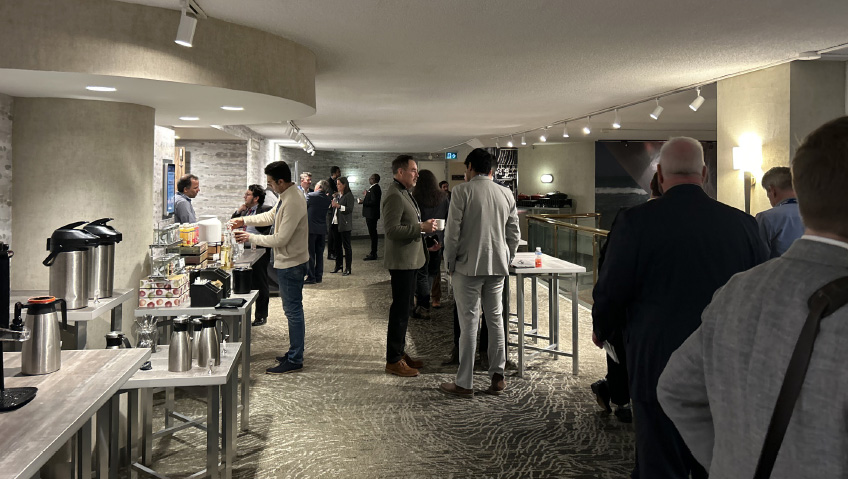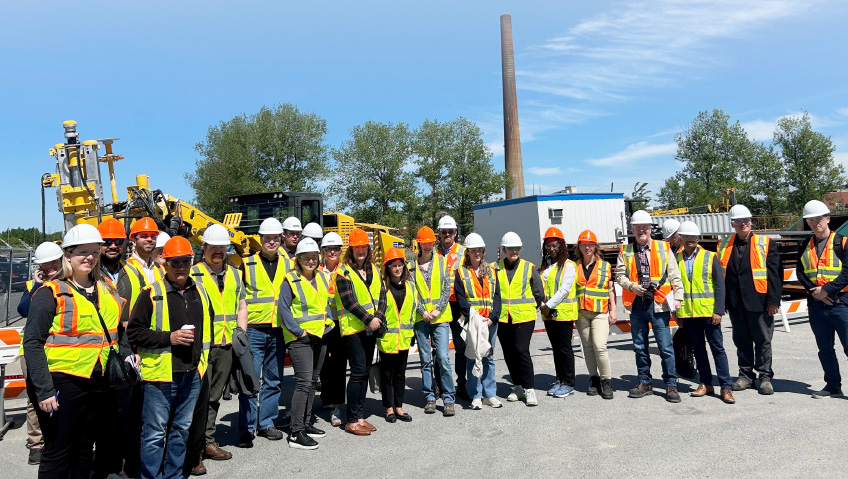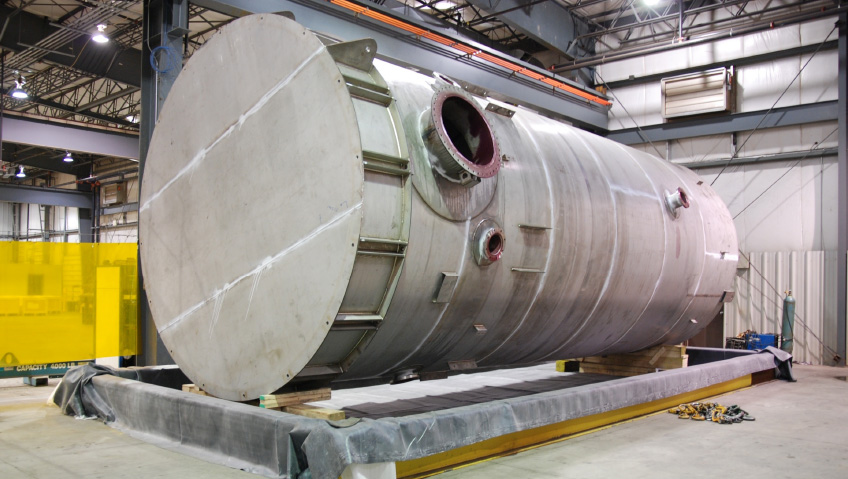When it comes to the future of mining, Mining Innovation Commercialization Accelerator (MICA) Network Director Chamirai Nyabeze says that the industry has become closely tied to the future of the planet itself. This is being driven by multiple factors including the transition toward green energy in mining, a global desire for a low-carbon economy, and ongoing demand for the minerals and metals that make the conveniences of modern life possible. Nyabeze emphasized mining’s role in addressing climate change and climate goals at the recent COP2 event held in Dubai.
Recognizing these factors, mining companies want to do their work in as clean, efficient, and human-sensitive a way as possible so that this can become a cleaner industry overall.
To this end, the organization brings forward technologies that look to disrupt the sector, especially those that will improve prospecting and exploration, mine design, construction, permitting, remediation, and land restoration. “MICA is going to give the mining industry the tools it needs to become the mining industry of the future,” says Nyabeze.
This kind of disruption cannot be achieved alone, so while many mining companies develop technologies on their own, MICA aims to bring them all together and coordinate how mining innovation evolves. Through its network of over 100 members, six Regional Main Partners across Canada, and National and International Associate Partners, the organization taps into this innovation web that in turn feeds back into the country’s networks and goals.
Nyabeze says that MICA’s role is to usher in the future of mining in Canada in such a way that the country plays a key role, such that Canadian companies and inventors can contribute globally with their innovations and organizations can continue to meet and exceed climate-centric objectives.
Since 2022, MICA has continued moving forward in crucial ways. First, it has formalized its approach to international outreach and onboarded a new Director for Global Outreach. This appointment will create more pathways for organization members to take on a global reach so that Canadian technology can spread more effectively across the world. Nyabeze accepted a promotion to Network Director in July 2023, allowing him to work more formally in the areas of leading and developing.
MICA’s network of partners continues to grow in terms of interconnectivity as its influence and brand become more well-known, especially through various events in the national and international mining community. Nyabeze also says that the organization has since established relationships in countries like Germany, Saudi Arabia, Chile, Peru, and parts of Africa, which will only further promote this sense of interconnectivity. It has overall been a part of nearly 150 national and international events and activities, including academic engagements, conferences, workshops, panels, and presentations. In addition, the MICA team—Nyabeze and Douglas Morrison, CEMI President and CEO—recently attended the Future Minerals Forum in Riyahd, Saudi Arabia, where CEMI was consulted in the development of International Networked Centres of Excellence.
To date, MICA has allocated $26 million to 40 projects from across the mining value chain, and these projects are set to mature by 2026 and hopefully add 40 new technologies to the mining landscape. These technologies are being funded in four distinct areas: activity, which refers to increasing the production capacity of mines; energy, meaning reducing consumption and emissions; smarts, the implementation of autonomous mining systems; and environment, reducing risk and liabilities to natural resources. All these technologies work together to accomplish the mining industry’s objectives toward growth and prosperity.
Nyabeze says that there are some very promising technologies on the horizon from these projects. For instance, the company ApoSys Technologies is working on an underground positioning system that will allow more autonomous machines in mining. By enabling the use of robotics in more dangerous spaces, mines of the future can become more efficient and less risky for humans.
Elsewhere, Extract Energy is putting forth solutions to capture and convert low-grade heat from mining operations into electricity; H2nanO looks to manage waste water sources; Destiny Copper offers low-energy copper processing; and Rithmik Solutions’ ‘Equipment Doctor’ technology allows mining operations to perform predictive analysis and maintenance of equipment.
Critical minerals are another important aspect of today’s mining work. These are defined as strategic minerals needed to supply in-demand areas, those that are important to the supply chain and often found in low concentrations. Nyabeze says that innovation and technology are key to affording companies in the industry the ability to mine, process, and add value to critical minerals. MICA member, Litus Inc., from Calgary is pioneering a Direct Lithium Extraction technology that promises to harvest lithium from low-concentration sources.
The mining technology supported by the organization will allow future mines to open faster and more effectively so that any critical mineral mine will benefit from the work of MICA and its technologies. The organization is also working with its technology providers to aid smaller mining companies in getting into the critical mineral game, an area typically reserved for bigger corporations.
Existing in one of the oldest industries in the world, MICA is asking the question of what needs to be changed in the industry to accommodate innovations on the rise. Nyabeze says that the mining industry needs MICA to support and de-risk innovations and raise the level of confidence that these innovations work; however, the mining industry holds many potential dangers, so MICA wants to remove humans from this as the industry itself opens to solutions that will achieve safer operations.
Companies are looking to open new mines where the footprint of mining itself is minimal, especially as it pertains to the local environment and economies. Typically, Ontario locations like Sudbury and Timmins are communities that have been supported by mining for generations, but the call is now on for mining to be more responsible for its environmental and worker impact. “We want to make sure that mining is respectful of the environment and people,” Nyabeze says.
As the year is well underway, MICA will soon be looking to have a presence on the international stage at Mining Indaba, from 5-8 February in Cape Town, South Africa. Organization representatives will be attending the conference as well as taking a mission of partners and members to Johannesburg. Nyabeze says that Africa is the place with the most concentrated amount of valuable minerals, so MICA wants Canadian technologies to play a part in the development of the African mining industry.
The organization is also pushing more activities and events across Canada to knit together the innovation ecosystem present in the mining space. This will further increase the outreach, memberships, partners, and companies of MICA, as well as the innovation of that network.
Closer to home, MICA’s online portal will be adding new features this year, where members can do more matchmaking to find integrators and solutions. In fact, it is enlisting an open challenge to all mining companies to be open about their ongoing problems and challenges so that it can vet solutions to these problems from around the world. Finally, MICA aims to get more involved at the academic level with students and work to address and initiate relationships with the next generation of workers.
MICA continues to position itself as a global leader in curating emerging solutions for mining, and it wants mining operators around the world to regard it as a go-to place for innovations that can make operations better and affect them in significant ways as far as possibility, environmental performance, and how these technologies deal with the people that represent the beating heart of mining operations. Simply put, MICA “will make mining better,” as Nyabeze says.
For more information about MICA please contact info@micanetwork.ca.






